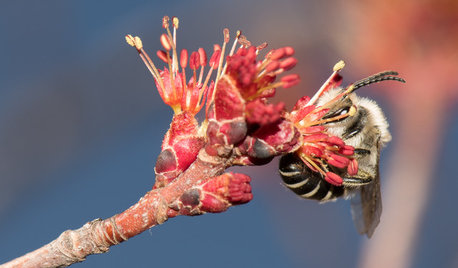Best organic pesticide for house plant soil?
algar32
10 years ago
Featured Answer
Sort by:Oldest
Comments (11)
jean001a
10 years agoKimmsr
10 years agoRelated Professionals
Mount Wilson Landscape Architects & Landscape Designers · Middletown Landscape Contractors · Peabody Landscape Contractors · Columbine Landscape Contractors · Firestone Landscape Contractors · Fountain Valley Landscape Contractors · Franklin Landscape Contractors · Gresham Landscape Contractors · Hickory Hills Landscape Contractors · Long Beach Landscape Contractors · Oak Forest Landscape Contractors · Painesville Landscape Contractors · Plantation Landscape Contractors · Tavares Landscape Contractors · West Chester Landscape Contractorsalgar32
10 years agoKimmsr
10 years agoTiffany, purpleinopp Z8b Opp, AL
10 years agorhizo_1 (North AL) zone 7
10 years agoLeafhead
10 years agoKimmsr
10 years agoshonman
9 years agoshonman
9 years ago
Related Stories

FARM YOUR YARDHow to Get Good Soil for Your Edible Garden
The nutrients in your soil feed the plants that feed you. Here are tips on getting it right — just in time for planting season
Full Story
GARDENING GUIDESGet the Dirt on Your Garden’s Soil
Understand how your soil supports your plants so you can ensure your garden’s success
Full Story
GARDENING GUIDES10 Solutions for Soggy Soil
If a too-wet garden is raining on your parade, try these water-loving plants and other ideas for handling all of that H2O
Full Story
GARDENING GUIDESHave Acidic Soil in Your Yard? Learn to Love Gardening Anyway
Look to acid-loving plants, like conifers and rhododendrons, to help your low-pH garden thrive
Full Story
GARDENING GUIDESGardening Solutions for Dry, Sandy Soils
Has your desert or beachy site withered your gardening creativity? Try these ideas for a beautiful, easy-care landscape
Full Story
GARDENING GUIDESThe Poop Scoop: Enrich Your Soil With Good Old Manure
Get over the ick factor already — this natural super-ingredient for soil has so many benefits, you'll wonder why you ever went chemical
Full Story
GARDENING GUIDESInvite Cellophane Bees to Your Garden by Providing Patches of Bare Soil
Look for cellophane bees (Colletes) pollinating flowering trees and shrubs in U.S. gardens this spring
Full Story
GARDENING GUIDESHow to Pick a Mulch — and Why Your Soil Wants It
There's more to topdressing than shredded wood. Learn about mulch types, costs and design considerations here
Full Story
GARDENING GUIDESHow to Stop Worrying and Start Loving Clay Soil
Clay has many more benefits than you might imagine
Full Story
GARDENING GUIDESGardening Solutions for Heavy Clay Soils
What’s a gardener to do with soil that’s easily compacted and has poor drainage? Find out here
Full Story









ken_adrian Adrian MI cold Z5